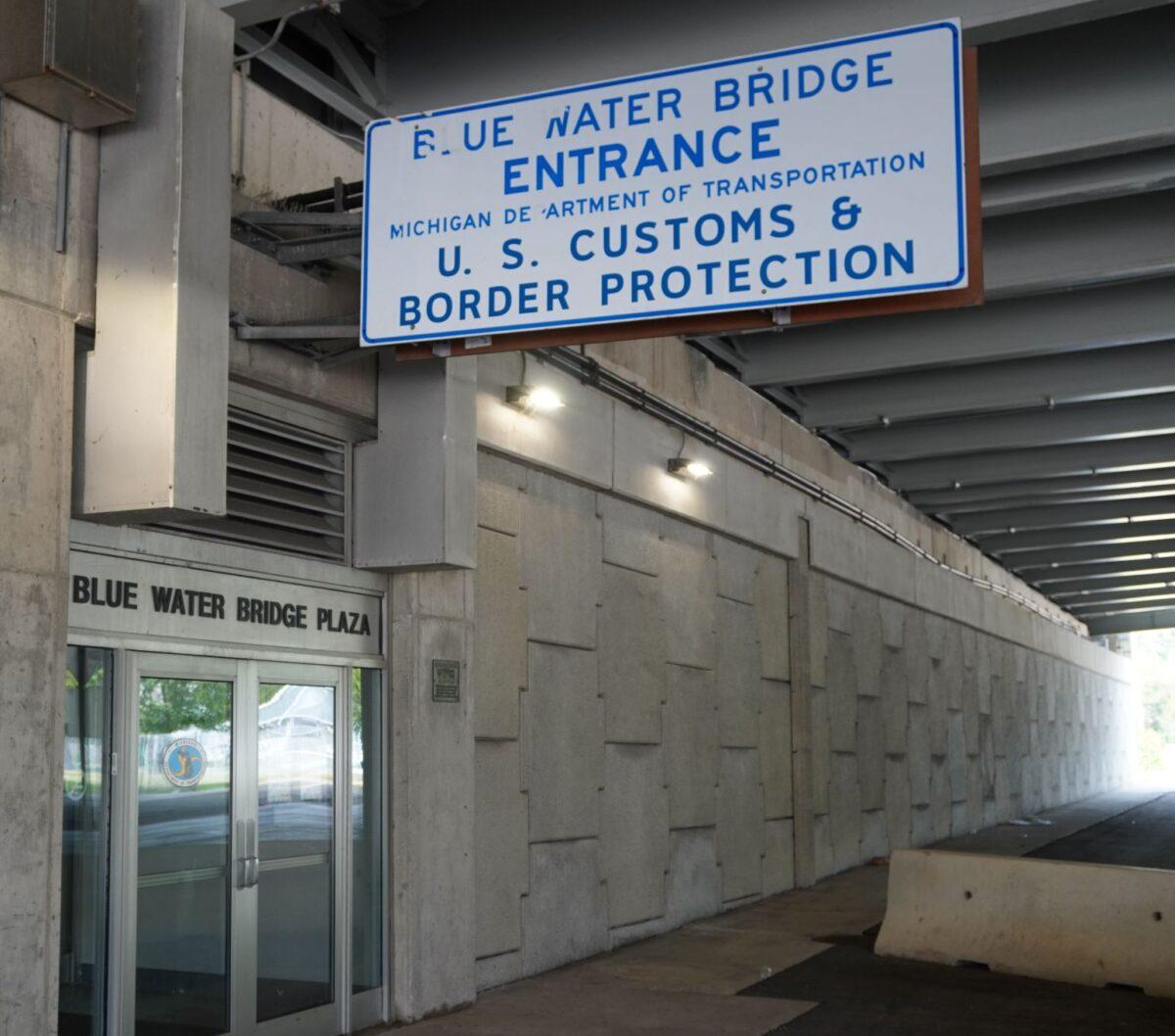PORT HURON, Mich.—The economy of Port Huron, Michigan, a riverside border town of 29,000, has been devastated by what many here call the “unreasonable” 17-month long ban on Canadian shoppers.
“Non-essential to whom?” is the question being asked by many Port Huron area retailers.
One such merchant is Demiree Fultz, the owner-operator of a ladies’ clothing boutique in downtown Port Huron.
“We started freaking out when the pandemic struck,“ Fultz told the Epoch Times. ”When they shut down the border, we lost all of our Canadian customers. This really hurt us. We had to scramble just to survive. At peak season, 50 percent of our clients are Canadian.”

Emily Lask, the manager of a downtown family shoe and accessory shop, recalls how things were booming before the pandemic. “It was busy here with lots of Canadians, especially during the holidays,” said Lask.
Lask then recounted her experience working in a shoe store in a nearby mall in early 2019. “It was unreal. Over 70 percent of that store’s sales were to Canadian customers. They can buy shoes so much cheaper in the United States. At the mall store, parents would buy shoes for themselves and each of their children. Sometimes multiple pairs,” said Lask.
Downtown sweet shop and gift store operator Karen Palka said that during the summer 30 percent of her revenue comes from Canadian customers, and since the border closed that portion of her business has disappeared.
Lois Potts, who for 23 years has managed the Birchwood Mall in nearby Fort Gratiot, Michigan, said that before the pandemic 60 percent of its stores’ sales came from Canadian shoppers.

“With our big anchor department stores, the figure was as high as 80 percent back in the day,“ said Potts. ”Our Canadian customers love to shop. They used to come over here and make a weekend of it. They’d stay in area hotels and eat in local restaurants. I recall many times when they would arrive on tour buses. I miss our Canadian traffic.”
Dan Casey, CEO of the Economic Development Alliance of St. Clair County, in which Port Huron and Fort Gratiot are located, stated that retailers throughout the county have been harmed significantly by the prolonged border closing.
“The real harm is coming from the significant reduction in consumer spending from people across the border,“ said Casey. ”It’s affecting everything from gas stations, to sub shops, to big box retailers. Around this St. Clair County, the big boxes rely on Canadian shoppers for 40 percent of their sales.”
Even with the complex rules and various charges imposed by Canadian Customs, and a disadvantageous exchange rate for Canadian currency, Canadian shoppers save substantial money by crossing the border to purchase American groceries, gasoline, clothing, shoes, housewares, windows, doors, electronics, restaurant food, and more.
Before the lockdown, more than one million Canadians visited Michigan annually, with 15,000 cars and trucks crossing the Blue Water Bridge at Port Huron daily. After the lockdown, the half-empty parking lots and vacant storefronts of the Port Huron area tell the story.

State Representative Andrew Beeler (R-Fort Gratiot), who represents the Port Huron area, told the Epoch Times, “It makes no logical sense that law-abiding Canadians face restrictions entering our country when thousands of people illegally crossing our southern border face no restrictions, are permitted to remain in our country without documentation, and, as is often the case, are not screened for COVID-19, or (they) test positive.”
Republican congresswoman Lisa McClain, who represents the Port Huron area in Washington D.C., issued a statement calling on President Joe Biden to open border crossings to non-essential travel.
Democrat congressman Brian Higgins, who represents western New York state, with its busy border crossing at Buffalo-Niagra Falls, said in a statement that the continued lockdown of the U.S.-Canada border is hurting families and hurting economic recovery. “There is no excuse for the failure of the U.S. to lift restrictions on non-essential Canadian visitors,” said Higgins.
According to the U.S. Department of Transportation, the border crossing at Port Huron is the fourth busiest crossing along America’s northern border. The top three are Detroit; Buffalo-Niagra Falls, New York; and Blaine, Washington.
As of Aug. 8, U.S. Customs and Border Patrol announced that “the temporary restriction on non-essential travel at U.S. land border ports of entry remains in effect.”
The Canadian government has recently loosened some of its border lockdown restrictions. Since June, U.S. residents have been allowed to visit family members in Canada. They must commit to stay in Canada for 15 days, and must self-quarantine for 14 days as they enter the country. This requirement was recently further loosened by exempting from quarantine those visitors who can show proof that they had been fully vaccinated 14 days prior to entering Canada.
A recent statement in the Federal Register declared that the U.S. borders with Mexico and Canada will remain closed through Aug. 21 for land and ferry crossings.
This at a time when U.S. Customs and Border Patrol announced that more than one million migrants crossed America’s southern border illegally thus far in fiscal year 2021, with nearly 190,000 in June alone.






Friends Read Free